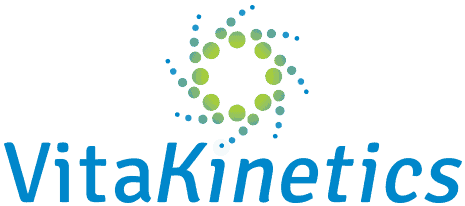Radically Resilient Health Podcast
Emotional and Mental Resiliency With Dr. Dusty Braun
Our mind and body are intimately interconnected in ways that we can’t really comprehend outside of science. We oftentimes think ourselves or our minds as separate from our body, when in reality they are linked so closely that we can be affected physically by each and every little thought. In this special episode of Radically Resilient Health, special guest Dusty Braun helps us understand the emotional, mental, spiritual components of Radically Resilient Health.
Transcript:
Connie Wray: (00:00)
Welcome back to radically resilient health with Dr. Carolyn Dolan. I am your host Connie Ray. And on this episode today, we’re going to be talking with Dr. Dusty Braun. He’s a psychologist in Reno, but he is also the owner and founder of our local food basket, which he started with his wife locally sourced, food, fruits, and veggies. And we’re also gonna talking with him about the importance of the five Vitakinetic principles and what tips the balance for someone to be radically resilient in their health. We’ll talk about eating well, moving well, connecting well, supplementing well and sleeping well, Dr. Carolyn Dolan. Thank you again for being with us, and I’m really looking forward to this. We, we talk so much about your principles and I think having, having, uh, Dr. Braun with us today is gonna be great because we’re talking about our local food basket, fruits and veggies, eating delicious whole nutrient dense foods, such a key component to radically resilient health.
Dr. Carolyn Dolan: (01:03)
Yeah. I’m really excited to meet with Dr. Braun today. Um, we met, I mean, it’s been years now. We almost became neighbors cuz they considered a, almost a farm property near our house. And that was gonna be really exciting. But what, you know, Connie and I, and on radically resilient health often are time about the mental health piece. And we really thought having somebody, um, with that expertise sort of share what their experience is in those fundamental principles and how they play a role in that resiliency as it relates to mental health. And obviously nutrition is an important component, but it’s not the only C and we’d love to hear your story and your sort of clinical perspective on, on that take.
Dr. Dusty Braun: (01:50)
Yeah, so I, I started in practice originally. I was gonna be a high school math teacher. I have a degree in secondary math education that I’ve never used. I got my master’s degree to make more money as a teacher ended up falling in law of with marriage and family therapy and then went on and got my doctorate. And my perspective over the years has, has really changed a ton. I, I would say that my kind of general approach, I taken eclectic approach. I like using a lot of different therapeutic, uh, modules, but kind of the foundation for the way I approach every client that comes into my office. And I try and do for my own personal life. Although sometimes I’m not as great at that, but I take a bio psychosocial spiritual model for health and that’s kind of the overarching, uh, foundational principles of my practice.
Dr. Dusty Braun: (02:37)
So that every person that comes into my office, whether they’re dealing with PTSD or they’re dealing with depression or, or difficult life choices, whatever’s going on, we kind of start at the basics we start with with kind of the environmental factors that we can control or attempt to control or, uh, attempt to influence kind of right off the bat. And so the, the first questions I ask people is what are you eating? What’s your appetite? Like what types of foods are you eating and how much exercise are you getting? What’s your sleep schedule? Like, are you napping too much through the day and not sleeping at night? What’s your social life like it where we’re kind of hitting all of those factors right up front, because honestly those factors are the, those are the biggest influencers on mental health in general, the, as I’m sure you’re well aware, the, the vagus nerve kind of connects to our brains and runs all the way down through our body, connecting to our, our throats and our lungs, our guts, our bowels, and 85% of the serotonin that we get in our brain comes from our guts.
Dr. Dusty Braun: (03:38)
It transferred up to the brain. And so what you’re putting into your body is hugely important. Like the it’s the first factor that we, we tend to focus on whenever we’re attempting to improve mood or lessen anxiety, that type of thing. It’s also the thing that, especially now coming in, climbing our way out of COVID that many of us have not done well. I know I tried to eat my way through COVID with comfort foods for quite a few months. And, um, it didn’t go very well for me. So that’s kind of my general approach, kinda the foundational aspect of, of the way I approach every client.
Connie Wray: (04:11)
I find it so interesting. Carol and I have had many conversations about, you know, the food that you put in your body. And one of the things that I have said to her is I find it so interesting when you talk to certain people, um, who aren’t connecting or listening to their body when they put food in it. I, I feel as though I, I can immediately tell when I’m not eating. Right, right. You know, if I, the minute I have a hot fudge sundae, I feel it. And, uh, if it’s out of my normal eating routine, why do you think that we have such a disconnection between listening to what, how our body responds when we eat certain foods?
Dr. Dusty Braun: (04:57)
You know, it’s funny, I was thinking about this last night and getting ready for to day. And I think sometimes we treat ourselves as separate from our bodies. It’s, it’s like we have this, this sense of self and, you know, and we could talk about the, the ego and the super ego and the ID and, and all of that stuff. And kind of the structures that make up like who we are as, as people. And so we, we tend to think of ourselves and, and then we don’t really connect the body portion to that. It’s like, we have this sense of self and we have our relationships and we have our work life and we parent a certain way, but we, we don’t necessarily see the connection of like how, how I’m treating my body, what I’m putting into my body and how that impacts every other thing.
Dr. Dusty Braun: (05:40)
Right. So I think that’s part of it. It, I also think it’s, it’s part of it that whatever you put into your body, you’re gonna begin to crave, right? So if you’re eating lots of fruits and vegetables and healthy foods, and, you know, Carolyn is way more of a healthy person than I am. I love to grab a bag of chips after work, you know, but, uh, which I’m trying not to do, cuz my cholesterol’s a little high, but whatever you’re putting into your body, you begin to crave those things. Right? So if you’re putting in all sorts of bad fats and, uh, chips and bad foods, sweets, sugar, soda, those types of things, alcohol, if you’re putting your, all those things into your body, your body begin to crave those things. And you don’t even realize that the craving has happened until you, you begin to kind of, you know, take away those things from, from your body. You know, like I, I went off the chips, uh, about, you know, nine months ago cause I, I needed to lose weight and get into shape. And, and those first couple of weeks that was rough. It’s like, I didn’t know what to do with myself after. Cause I was so used to, to grabbing my little comfort food for the ride home.
Dr. Carolyn Dolan: (06:42)
We, we talk a lot about on the podcast too, about that gut brain connection. And a lot of what you’re describing is what you put in your microbiome. You know, the little bacteria in there begin to thrive off whatever you’re feeding it and can actually communicate to, of drive those cravings, you know, through the Vaus nerve. Like you mentioned. Yeah. The, the other thing that you brought up is, you know, the separateness of our bodies versus self. For me personally, I don’t even know that we realize how bad we actually feel mm-hmm
Dr. Carolyn Dolan: (07:37)
Yeah. This other way with, you know, the depression, the, you know, fatigue and all these other things. Like maybe I just thought that was normal, cuz everyone tends to have it. Um, I didn’t really realize, I felt badly until I actually started to feel good. So yeah, there is also that like people aren’t realizing the chips are actually or sodas, cuz it’s been just such a regular part of their lives in your clinical experience. I mean even outside of nutrition of these other roles, have you seen or noticed any particular component that has sort of stood out to you? That’s really demonstrated people being able to recover through some pretty significant, you know, traumas or life stresses into that resiliency realm. What’s been your clinical experience with that.
Dr. Dusty Braun: (08:28)
Yeah. It’s a, well as human beings we’re complex, right? So that it it’s uh, it’s, it’s not only these environmental factors that we focus on, you know, Hey, let’s, let’s fix what you’re eating, what youre putting into your body let’s get into a good sleep schedule. Let’s figure out how to get, you know, good rest at night where you’re going into the, you know, the deep parts of sleep and, and really allowing your brain to reset good social connections, which obviously coming through COVID has been a disaster, frankly, for the majority of people. Uh, and then as well exercise. So once we kinda get past that, then it’s like once we address those things, then, then we kind of what most people do. And frankly, what a lot of the, the mental health field tends to do is, is focus primarily on emotion, behaviors, uh, and thoughts.
Dr. Dusty Braun: (09:17)
And so which is kind of a general kinda C B T approach, cognitive behavioral therapy approach, uh, which is not a bad approach. I use a lot of those principles in working in therapy, but there’s also factors that are much deeper than that. Like we are, we are meaning making creatures and we tend to, we create meaning in our lives, through the relationships that we have through a deeper connection of something outside of ourself, through, uh, all sorts of, uh, different variables. And so that’s kind of, you know, whenever I kind of talk about like a depth to humanity, it’s like these environmental factors are up up here on the top and some of those things we can control and some, some of the times people can’t control those things and we, we can work with that resistance. But then the next layer down is kind of the thoughts, emotions, behaviors that are connected, that, that that’s the realm that we tend to live in day to day, just Monday through Friday that we, we kind of exist in those, in just our, our thoughts and how we feel that day and what behaviors we’re engaging in.
Dr. Dusty Braun: (10:16)
But deep underneath all of that stuff are meaning making structures that create the drive for what we have in our life. If, if I don’t have meaning or if I don’t have something that I’m striving for in life, uh, something that gives me a deep meaning and a deep connection to my place in this world at this time, you then why in the world would I care about what food I’m putting into my body or how much alcohol I’m consuming or how many sweets I’m eating at night or the types of relationships that I, that I have and try and cultivate. And so that’s where honestly the deepest level of change happens is, is deep inside the soul of a person when we begin to unpack all of these different types of things. So I don’t know if I’m explaining that well, but that that’s kind of a well, it’s what makes us human, right? It’s, it’s the, it’s the depth of who we are,
Connie Wray: (11:08)
You know, on our, our last podcast, we had talked a little bit about, you know, environment, emotions, how this all kind of comes into play. And I was talking about, um, I, I had an eating disorder for many, many years and uh, literally for 20 years. And then finally in my mid twenties got some help. And I always go back to the food was never the issue, right. It never was, it was other emotional, like you’re saying unpacking what that emotional right garbage was that I needed to get out is what saved me. The food was never, ever, ever, it was never about the food. It was about control. Right. And I’m just curious that with your patients, when you start to address these habits, are you eating well? Are you sleeping well, uh, do you get some pushback with people? Cause a lot of times when, if you come in and start therapy in your thirties, you’re set in your yes. Who you are, your makeup, it’s hard. I mean, I know how difficult and challenging it is. Yeah. To start a new habit, do you get push back or do they start to realize and see the value in, oh my gosh, I am starting to think about what I’m putting in my body and how I’m feeling.
Dr. Dusty Braun: (12:20)
Yeah. Yeah. It’s interesting. So my approach with every person that comes into my office, like, as people are talking to me, I’m kind of having a conversation with myself in my head, um, which I’m not schizophrenic, but, um, I’m a conversation with myself in my head about what type of approach is really gonna unlock or allow that, that light bulb moment to kind of kick on. Right. And for different people, it’s, it’s different things like for some people they are ready, willing, able, they come in, you say, Hey, go home. Do these three. They come back the next week and they’ve done the three things. And it’s like, okay, wow, we’ve got something to work with. I’ve got other clients where, you know, we’re two years down the road and they haven’t made one change. They, they haven’t, they haven’t been able to engage in any of the things that we’re talking about.
Dr. Dusty Braun: (13:11)
And working with that resistance people I think is really important. A and so the, the approach that I try and take is whenever I kind of find that type of resistance, or I feel like somebody is stuck, we try and go to the deeper levels of the human psyche and kind of the narrative or the meaning that’s associated with that. Like KA you mentioned, you know, an eating disorder in your twenties, like underneath the behavior. And the thoughts that were tied to eating and control was a value structure. Like we’re, we’re Val as human beings. We, we create our lives from a value structure. It’s like this ladder that that up to the top is the person that we put out into the world. And so the, when that ladder is, is filled with the value system, that’s tied to your sense of self, how you see your body, what food represents in that that’s a meaning narrative that’s deep down inside.
Dr. Dusty Braun: (14:04)
And so allowing people to shift that narrative or to change the narrative or change the story can be really, really key. Like, so the, the idea behind like narrative therapy is, is the idea that like we could watch a movie of someone’s life and we could get all the facts. So it’s why we love watching movies, right? We watch people’s stories unfold on the screen and we could see all the facts of everything, but there’s a second narrative that kind of exists on top of that, that story of facts. And that’s the story that we tell ourselves about story. Um, and sometimes those narratives can be really unhelpful. And, and those are the types of narratives that, that, you know, when, when you find yourself in that place where you’re believing something about yourself, that’s, that’s not helpful. That’s, that’s harmful. That’s unhealthy. Then how do we work with that?
Dr. Dusty Braun: (14:56)
And replace that narrative with a narrative that is much more helpful that allows a person to, to then begin to let go of that unhealthy narrative, that unhelpful narrative and move towards health. And then sometimes the environmental just change once that narrative has changed, once they’re able to, to begin to let go of the story, that’s holding them stuck in, in a world that they don’t like, you know, most people are coming to therapy because they don’t like where they’re at. They just don’t know how to, how to move forward with it. So I don’t know if that makes sense, but, um, but yeah, that, that’s kind of the, that I take.
Dr. Carolyn Dolan: (15:32)
Well, what I really love about what you’re saying is, and it’s been my experience both in the physical therapy clinic and when I was in that health coaching arena for, for a bit is if they don’t have a willingness or ability to make the changes in those areas, um, it, you go deeper into an area where you can hopefully start to make, make some changes and then it sort of trickles down mm-hmm
Dr. Carolyn Dolan: (16:29)
Yep. Doing the same thing. So even in the child’s, uh, if, if I was working with a parent related to a, um, a child’s condition, their success was dependent on whether or not everyone else in their family was willing to go, go in on it. And if there wasn’t, you had to just, you know, the success was going to your, your, of success were gonna be different. And you had to meet those people cuz you can’t always make dad eat the same things for whatever reason or the other child is older and wanting to make their own independent choices. But I love what you’re saying about just you meet them where they are, you don’t really perseve on those top level things and you kind of go to a, maybe more meaning spiritual side, um, purpose, purpose driven thing. Yeah. So, um, that’s really, it’s really important for people to hear too, because that part of this whole idea of radically resilient health was, again, all these components are, are important, important, and can be incredibly effective of course. And, and certainly something to strive for. But life is messy sometimes. Yes. And, uh, the human psychology can be complicated and you can still make gains working, um, in other ways. Yep.
Dr. Carolyn Dolan: (17:55)
So thank you so much for your time today. I really appreciate you sharing your expertise and um, yep. Food. You’ve got our local basket locally for some food delivery of nutritious, um, serotonin producing food. Right. I, I
Connie Wray: (18:12)
Have a question about that. Do you feel like that, that the driving force behind starting that business really did have to do with what you were experiencing with your patients?
Dr. Dusty Braun: (18:23)
You know, I, uh, I Christie my wife who’s much more wonderful human than I am. Um, she she’s always had this focus with food and she loves to cook. She loves to cook healthy things. Um, I’m grateful she’s in my life because I would probably be a health disaster if she wasn’t. But, um, she, she really just created this idea. I, it, the, it all started with an accident we accidentally had, uh, one of, of the major, um, uh, food delivery, um, meal services, uh, deliver a box to our door and we didn’t know who it was supposed to go to. So we just cooked the meal, don’t tell anyone. Um, and, uh, when, when we, we pulled everything out of the, the box, it was, it was packaged all over the place, a lot of international stuff a lot. And, and so she just had this idea of like, we live in a wonderful area with tons of, um, local proteins and seasonal, obviously when it comes to veggies, but right over the hill an hour away, we’ve got amazing fruits and vegetables that are organic.
Dr. Dusty Braun: (19:26)
And what if we could get that to people? Um,
Dr. Carolyn Dolan: (20:00)
Well, and we hope one day Christie and I are working on getting her, um, on board to interview on the podcast too. Um, awesome. It’s it’s really cuz she ran with that. I idea, but it’s really cool with her background. So hopefully we’ll get to that sometime. Thank you.
Connie Wray: (20:17)
I just wanna say thank you too, because I think that as a psychologist, um, you know, obviously when I was going through therapy, it was about food, but I’ve also gone through family therapy, uh, you know, for, you know, my husband and I of gone through therapy after, uh, we, we lost our daughter and mm-hmm,
Connie Wray: (21:13)
And for so long, I think we treated it so separately. Right? Well, oh, they got diabetes. We’re just gonna treat the diabetes. Well, let’s really look at the whole component. What is causing that or something causing them to crave the sugar in their or brain. Yep. So I, that, that’s what I think is really an amazing opportunity what Dr. Dolan is doing right now and, and you yourself, Dr. Braun is recognizing and highlighting to people that we are one. Yeah. Everything is connected. It is so, so very important that we understand that what we, we put in, what we’re feeding our body is also feeding our minds.
Dr. Dusty Braun: (21:51)
Yep. Yeah. It it’s so true. You know, and it’s interesting cuz there has been a shift in, in mental health. Um, you know, even when I was in grad school, I had the opportunity to take a nutrition and mental health class and I didn’t take it. Um, but uh, the, one of the last I went to to get some CEU credits, um, it, it was a, it was a conference on trauma and they spent an entire hour and a half session talking about nutrition and trauma and how those things are related and looking at sleep and looking at social environments and looking at exercise and, and how all of that is the interplay and kind of the backdrop and kind of taking that holistic approach. And so, you know, if I, as I’ve grown in my own clinical practice, I’ve I try and incorporate it as much as possible because it is huge. It’s key.
Dr. Carolyn Dolan: (22:41)
I, I forget what the statistic is. Um, you know, where the scientific research sort of catches up to clinical practice, like the, the sort of the lag time, but we’re really in this arena in, in the clinic, I even had an experience with, um, a physician recently related to my son was getting migraine headaches and they spent an hour and a half with us talking about nutrition, sleep screen in time, um, even recommended very specific supplements, um, as well as some other, um, medications to manage, uh, hydration. And it was, it was just, um, I mean, while we really do try to be on top of those things in our family. Yeah. It was very comforting to hear that coming from the clinician. So I, the more, the more information we can get from respected healthcare providers and paying attention to those things is really important.
Connie Wray: (23:38)
Yep. Dr. Bra, we appreciate you joining us for radically resilient health and really diving in and looking at how important these five Vitakinetics principles are eat well, move well, connect well, supplement well and sleep well. And, uh, again, thank you so much for, for sharing your insight into the connection between what we’re putting in our bodies and our mental health and how it plays such an important role. And I think it’s just an amazing opportunity through the, this podcast. It’s about radically resilient health. We say radically resilient health, but making those slight changes, what we’re really saying is it’s not that radical. It’s quite easy to make these subtle changes and the amount of improvement that your mind and your body and your soul and your spirit will experience from making those slight adjust. It’s it’s just magnificent. Well, it has been a pleasure being with you guys.

Mena
Radically Resilient Health Podcast Small Steps Conquer Mountains with Special Guest Mena Spodobalski Evoke Fitness owner, Mena Spodobalski, shares her joys and struggles toward radically resilient health. Health doesn't always have to seem radical. The best workout...
Recovery From Substance Dependency With Lori Windfelt
Radically Resilient Health Podcast Recovery From Substance Dependency With Lori Windfelt Radically Resilient Health is not about the absence of disease, injury, or stress, it is the ability to recover and make positive choices to support your overall health. Lori...
Why Supplements Are Necessary and How They Make The Difference
Radically Resilient Health Podcast Why Supplements Are Necessary and How They Make The Difference Dr. Carolyn Dolan shares her deeply personal "WHY" about developing Vitakinetics. Dr. Dolan actually wrote a thesis setting out to disprove the need for supplements and...
Available at our partner locations

690 West 2nd St. Suite 101
Reno, NV 89503

13981 S Virginia St #402b,
Reno, NV 89511








